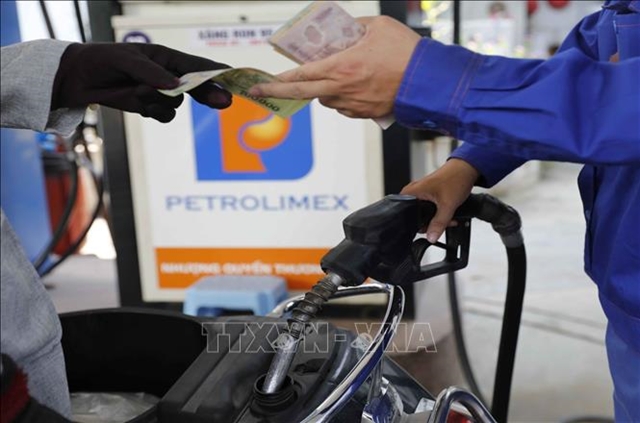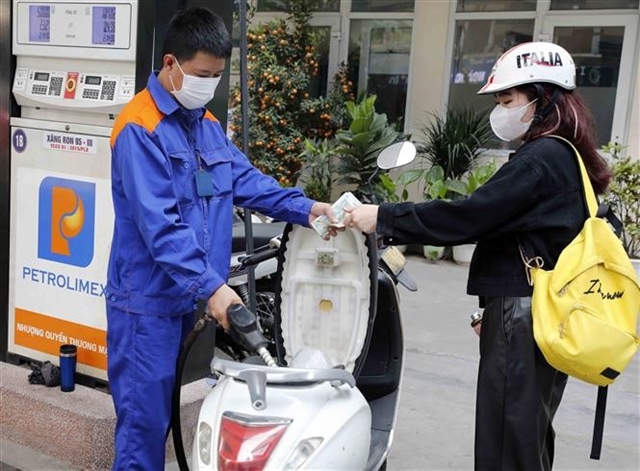 Economy
Economy

 |
| The Ministry of Industry and Trade proposes that petroleum wholesalers can determine their own selling prices. — VNA/VNS Photo |
HÀ NỘI — The Ministry of Industry and Trade (MoIT) is drafting a decree to replace current decrees on petroleum business, including Decree 83 in 2014, Decree 95 in 2021 and Decree 80 in 2023.
According to the new proposal, key petroleum businesses can set their own gasoline selling prices, while the State authorities only announce the average world petroleum price every 15 days.
The new draft takes the approach that the Government will only announce the 15-day average world petroleum price and some fixed costs such as foreign exchange rates, business expense ratios, enterprise profits and other types of taxes.
The enterprise will self-announce the maximum selling price based on the price formula prescribed by the State authorities. The enterprise's selling price cannot be higher than the maximum price according to the prescribed formula.
The drafting agency believes that letting businesses decide their own selling prices will help businesses compete on costs to gain market share. In particular, businesses are allowed to sell gasoline at prices lower than the maximum selling price according to the price calculation formula, thereby eliminating the application of Zone II gasoline selling prices by businesses.
In case the ratio of business costs and profits of the enterprise increases, the MoIT will work with the Ministry of Finance to report to the Prime Minister to consider making adjustments to suit the situation every 15 days.
However, many experts and businesses are concerned that the proposal could cause unfair competition and market manipulation.
Associate Professor Dr. Ngô Trí Long, former director of the Ministry of Finance's Price and Market Research Institute, said that the proposal towards a self-determining price mechanism for businesses is a strong change in terms of price management and administration. However, it is necessary to consider carefully when giving the right to set gasoline selling prices to the enterprises.
According to Long, in the draft, the State stipulates in the pricing structure's "hard" elements, while "soft" parts such as business costs are decided and calculated by the enterprise.
Long suggested that, in terms of the "soft" element, it is necessary to have a mechanism to control and avoid price pushing strictly.
“There are currently several petroleum giants who hold a dominant position in the market. If these businesses are allowed to decide the selling price of gasoline, many problems would arise,” said Long.
Long also suggested carefully evaluating the impact of whether the proposal to let enterprises set gasoline prices themselves is consistent with the current Price Law.
Lê Văn Báu, Director of Bảo Dương Petroleum Company in HCM City, said that if the State regulates prices correctly and calculates full costs in all stages, including retail, it is unnecessary to let the enterprise decide the selling price of gasoline.
According to Báu, currently, retail businesses have to pay costs such as premises, labour, bank interest rates, electricity, water and maintenance. If these costs are calculated correctly and fully in the price structure (from five per cent to six per cent), then retail businesses will have enough strength to maintain business.
Trần Thụy Thùy Trâm, Director of Đoan Việt Trading Company in HCM City, said that if the State does not regulate the minimum discount level for all stages (enterprises, distribution traders and retail business) then it should let the business set its own prices to have healthy competition.
Trâm said that if the MoIT does not regulate the price calculation mechanism and allocate enough costs for all stages, large enterprises would create the game's rules, easily leading to supply interruption if the market has large fluctuations.
In terms of retail business, it is necessary to have a discount to ensure all costs and profits for retail businesses, added Trâm. — VNS




